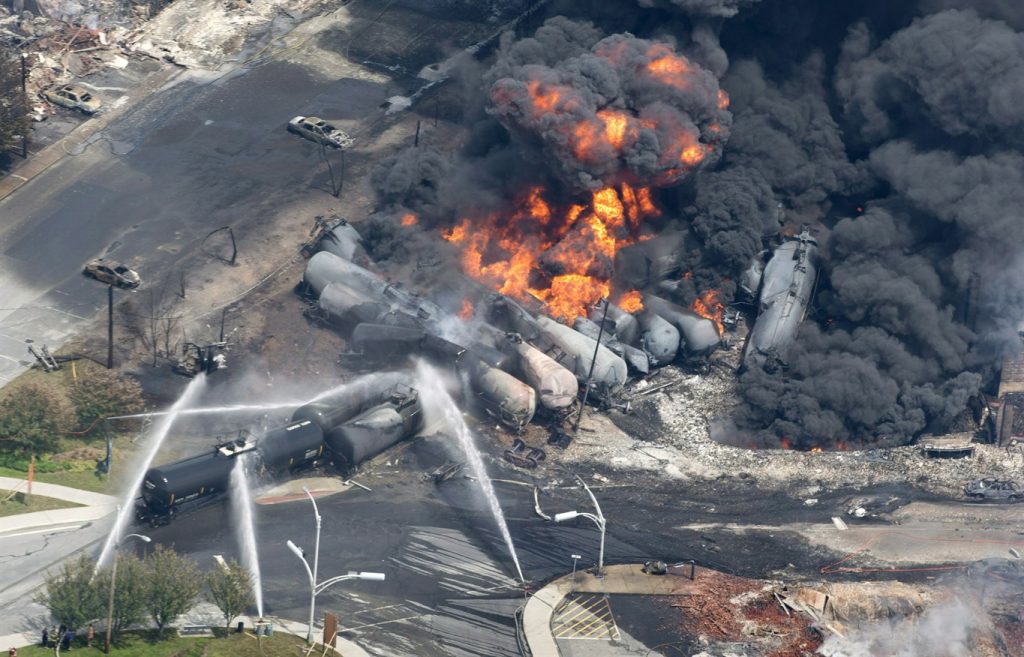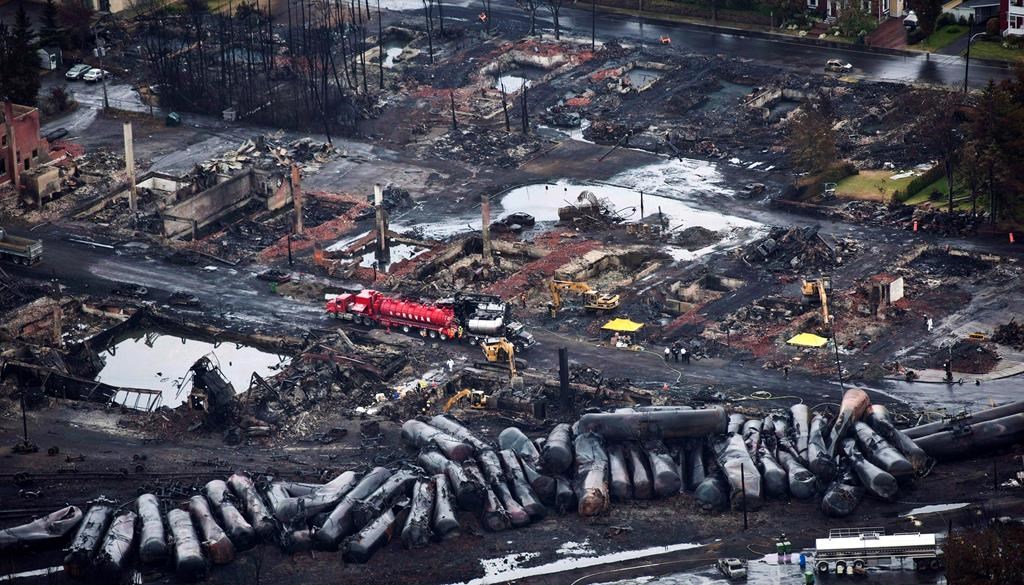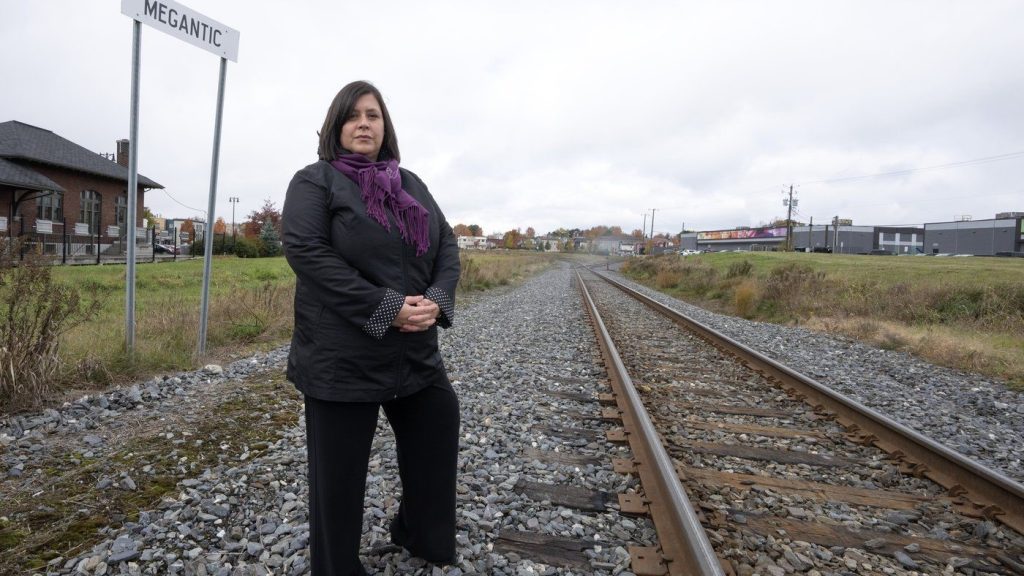Lac-Mégantic: Court of Appeal confirms CP Railway was not responsible

Posted February 26, 2025 5:54 pm.
Last Updated February 26, 2025 6:04 pm.
Canadian Pacific Railway (CP) bears no legal responsibility for the train disaster that claimed 47 lives in Lac-Mégantic on July 6, 2013.
The Court of Appeal confirmed the decision handed down in December 2022 by Superior Court Judge Martin Bureau. “In the end, the faults of (Thomas Harding, the Montreal Maine and Atlantic train operator) and MMA remain the only logical, direct and immediate cause of the disaster,” concluded the three-judge panel that heard the case. The trial lasted just over 60 days and involved 55 witnesses, 13 expert reports and thousands of exhibits.
For the second time, the court was called upon to examine three grouped lawsuits: one filed by a group of citizens and businesses who were victims of the tragedy, one filed by the Quebec government, and one filed by the insurance companies that had to compensate the victims.
Canadian Pacific was the only one of the 24 companies involved that had refused to participate voluntarily in the $460 million compensation fund.
RELATED:
But the Court of Appeal reiterated that “CP did not own the train that derailed, nor its cargo” and that “this rail convoy was under the control of MMA, a rail company totally independent of CP and duly accredited.”
“No one disputes that it was due to the gross negligence of this employee (Thomas Harding) in the procedure for stopping this convoy on a sloping section of track, in violation of elementary safety rules, that it made an uncontrolled descent towards Lac-Mégantic and then derailed at the entrance to the town center,” the court ruled.
The appellants, says the Court, have failed to demonstrate that the judge committed numerous errors of fact and law. “On the contrary, the Court concludes that the judge correctly stated the state of the law regarding CP’s liability and correctly applied it. Moreover, contrary to the appellants’ contention, the judge’s factual findings are firmly grounded in the evidence and are free of reviewable error. Finally, there is no error in the judge’s conclusion as to causality. Thus, even assuming that CP’s conduct had been at fault, it would still not have been the cause of the derailment.”
RELATED:
The plaintiffs’ arguments were mainly based on the fact that MMA was a subcontractor of CP in this case, which therefore engaged its liability. In their view, CP, which had sold the railroad to MMA, knew not only of the danger presented by the track, but also of MMA’s negligent conduct. Among other things, they also criticized MMA for failing to carry out the necessary checks to ensure that the contents of the tank cars were properly labeled as a much more dangerous material than indicated in the documents.
The stakes were not insignificant. The sums claimed by Quebec, insurance companies and victims far exceeded the $460 million collected by the fund. If Canadian Pacific had been found partially liable, it would have had to pay millions of dollars. Given the stakes involved on both sides, it should come as no surprise that this decision will be appealed to the Supreme Court.
–This report by La Presse Canadienne was translated by CityNews

















